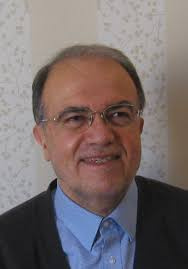Interview: Dr Ali Akbar Moosavi-Movahedi

- Dear Dr. Ali Akbar Moosavi-Movahedi, you have been actively involved in the formation and establishment of the Permanent Secretariat for the Advancement of Science and Technology in the Islamic World (SASTIW) from the very beginning. As its Secretary-General, what is the need for having this secretariat?
The secretariat was founded on the proposal of Professor Dr. Mohamed Abdus Salam, the Nobel Prize winner in physics. The World Academy of Sciences (TWAS), Academy of Sciences of Iran, and the then Ministry of Culture and Higher Education, welcomed the proposal and so it was decided to be based at the University of Tehran. Its first international conference was held in 1993 with the participation of prominent national and international scholars and scientists. The chairperson of the conference was the then Iran's president, and its secretary was the president of the University of Tehran. One of the most important factors in the development of science is the assembly of scientists for big decisions. Always science requires the conference of scholars; in other words, science is conceived with the discussions of scientists and scholars. On this purpose, this international conference was held, and it was scheduled to be held in one of the Islamic countries every two years, but this did not happen. Between 2015 and 2018, four international meetings were held by the secretariat, the proceedings of which were published in the form of a booklet in Persian and English, available at the website of the Secretariat at http://sastiw.ut.ac.ir/. For each conference, I issued a message in English and I spoke at each opening sessions.
- Given the recent problems in the region, esp. in the Middle East, do you think the secretariat can play an effective role in solving these problems?
Today, scientific diplomacy is one of the most important ways of friendship between countries, because most countries are pro-science. In a sense, the term diplomacy means friendship between nations. One of the main pillars of progress in each country is the advancement of science. When science in a country progresses, it sustains the country and wins every negotiation.
- What is the secretariat's future plans?
One of the main plans of this secretariat is the formation of a network of scholars of the Islamic world and a global network for scientific communication between scientific institutions, as well as between scientists, thinkers and researchers. In this regard, the approach of the Secretariat is to form meetings for scientific consensus on natural and unnatural problems of society. The gathering of scientists and their discussions could provide a solution to the problems of countries; problems such as the environment, industrial diseases and emerging diseases for humans and other organisms, climate change and global warming, and human and natural disasters. However, another important issue is the focus on fundamental sciences, basic sciences and discovery, which is the root of understanding innovation and technology in the future. The most important approach to science is the discovery of natural phenomena, which is the dominant area of the basic sciences, fundamental sciences and interdisciplinary sciences. Science without nature is not science. Therefore, to discover the phenomena of nature, the assembly of scientists is necessary either physically or virtually.
- According to the Institute for Scientific Information, you are one of the world's leading biochemists and biologists. What goals do you pursue in the network of scholars of the Islamic world, which is formed in collaboration with the Permanent Secretariat for the Advancement of Science and Technology in the Islamic World, and what is the approach of this network?
One of the main goals of this Secretariat is networking and linking scientists to make big decisions in the world. Based on science and wisdom, Iranian scientists have provided humanity with great service without sacrificing nature, and played a major role in today's science infrastructure. Now, through the cooperation with other scientists, scholars, and researchers, they are pursuing the advancement of great science for humanity. Great science is the integral part of science and wisdom.
- What steps have been taken to set up this network?
So far, the secretariat has held a major international conference and four international effective meetings with scientists and thinkers on topics such as culture and cyberspace, water recycling, threats to soil, and population dynamics & human capital in Islamic countries. The people who participated in these gatherings and their affiliated institutions are now on the network, and scientific cooperation with them continues. Several meetings have been held with the ECO Institute in Tehran and an agreement has been reached. In addition, joint meetings have been held to cooperate with the ECO Scientific Institute in Islamabad. Also, joint memoranda of understanding have been signed for cooperation with some scientific associations.

Your Comment :